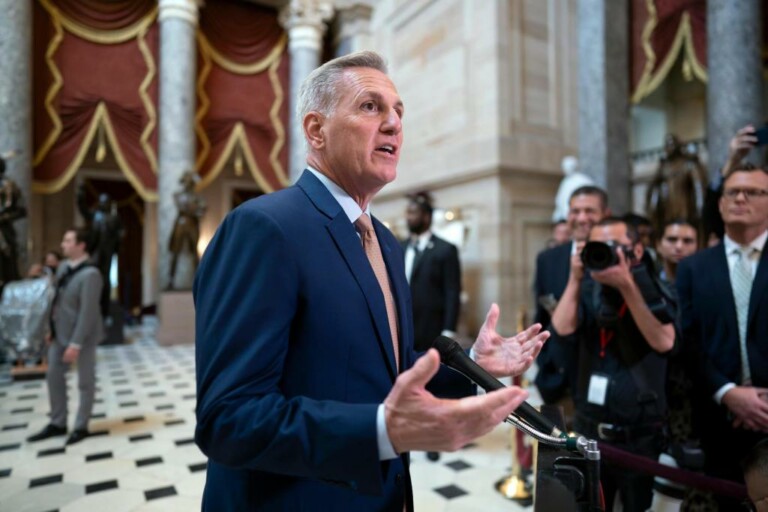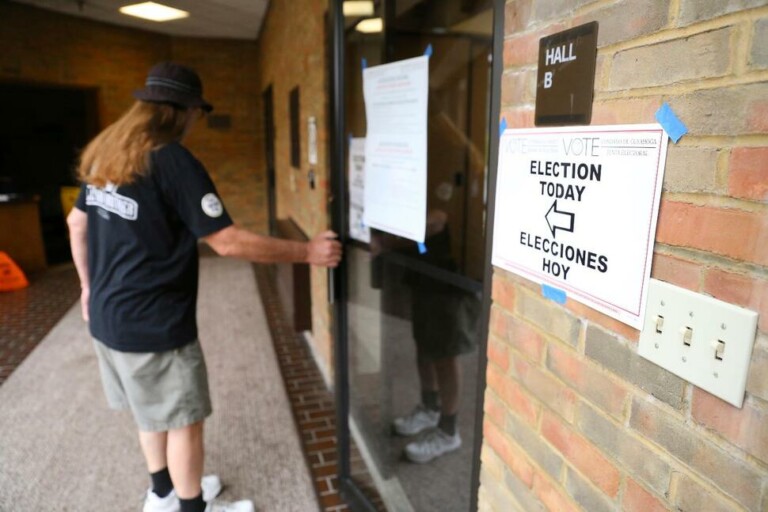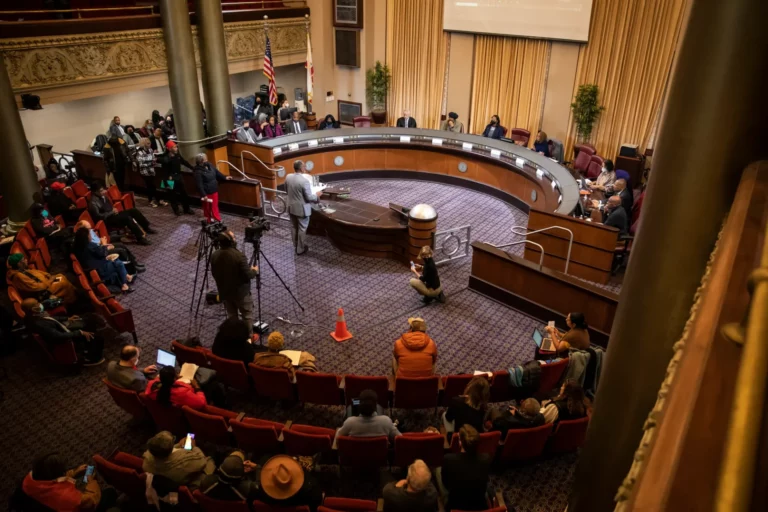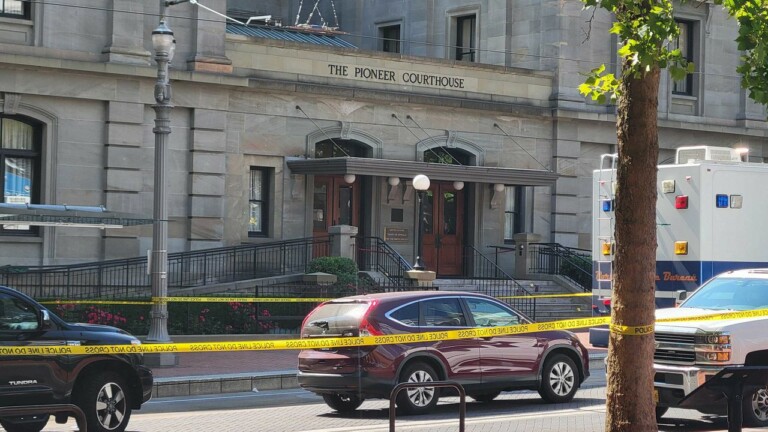Fitch Ratings caught most of Washington off guard a week ago when it downgraded the debt of the U.S. government.
But it should not have. Few in positions of power on Capitol Hill or the White House could have missed federal finances spiraling out of control for years. Even the deal earlier this year to end the debt ceiling standoff did little to alter the fact that the U.S. is spending more than it earns – and that is not going to change anytime soon.
“In Fitch’s view, there has been a steady deterioration in standards of governance over the last 20 years, including on fiscal and debt matters, notwithstanding the June bipartisan agreement to suspend the debt limit until January 2025,” Fitch said in its Aug. 1 announcement marking down U.S. debt to AA+ from AAA. “The repeated debt-limit political standoffs and last-minute resolutions have eroded confidence in fiscal management,” Fitch added. “In addition, the government lacks a medium-term fiscal framework, unlike most peers, and has a complex budgeting process. These factors, along with several economic shocks as well as tax cuts and new spending initiatives, have contributed to successive debt increases over the last decade.”
Washington reacted with its usual opprobrium when outsiders state the obvious. And partisans on both sides treated the downgrade with predictable outrage.
The White House “strongly disagrees” with Fitch’s move, press secretary Karine Jean-Pierre said, adding that it stands in stark contrast to the current strength of the economy.
“It’s clear that extremism by Republican officials – from cheerleading default, to undermining governance and democracy, to seeking to extend deficit-busting tax giveaways for the wealthy and corporations – is a continued threat to our economy,” Jean-Pierre said.
Treasury Secretary Janet Yellen said “Fitch’s decision is puzzling in light of the economic strength we see in the United States. I strongly disagree with Fitch’s decision, and I believe it is entirely unwarranted.”
The move provided Republicans, who are trying to use “Bidenomics” as a cudgel on the campaign trail, a new round of ammunition – especially with polls showing most Americans still feel uneasy about the economy and especially inflation.
In an Ipsos poll released Monday, 48% of those polled said they were better off. But when asked specifically about the economy, 64% of Americans say the economy is worse off compared to 2020, and 73% say it is worse than compared to five years ago. And that spells trouble for Joe Biden.
“People think the economy has gotten worse and they’re holding him responsible,” says Chris Jackson, pollster and vice president at Ipsos. “Whether or not he’s responsible, he’s going to get blamed for it.”
Indeed, Rep. Blaine Luetkemeyer of Missouri responded to the Fitch downgrade by issuing a statement noting his concerns about the rating agency’s “history of subjective ratings” but put the blame on Democrats.
“Reckless fiscal policy that caused the inflation we’re still suffering is also harming confidence in our currency and treasuries,” said Luetkemeyer, a member of the House Financial Services Committee. “House Republicans understood this truth which is the reason Speaker [Kevin McCarthy] made countless attempts to start a dialogue with the White House months before the debt limit was reached.”
Meanwhile, the powers that be in the financial world said Fitch’s actions were unwelcome and even “bizarre.”
“The United States faces serious long-run fiscal challenges. But the decision of a credit rating agency today, as the economy looks stronger than expected, to downgrade the United States is bizarre and inept,” former Treasury Secretary Larry Summers tweeted.
Financial analysts were quick to point out that the U.S. Treasurys remain the “flight to safety” asset of global renown and that the U.S. dollar is still the world’s reserve currency. There is little, if no, chance of a default on its obligations by the U.S. government.
“The rating agency cited the lack of resolve of both political parties in reining in the budget deficit,” Jason Pride, chief of investment strategy and research, and Michael Reynolds, vice president of investment strategy, at Glenmede, said. “Lastly, Fitch noted the recurring periods of debt ceiling brinksmanship, which have each run the risk of triggering a technical default.”
As long as the U.S. continues to live beyond its means, it will be penalized by the markets, hard decisions will ultimately have to be made by politicians, and benefits paid out through the various social safety net programs will be at risk. It’s just impossible to say when these will happen, although existing budget deals do include a potential 20% cut to Social Security payments by 2033 if that program is not put on sounder financial footing.
It is not like the issue hasn’t been broached before. In 2011, following protracted debate over the debt and government spending, S&P downgraded U.S. debt to AA+ from its prior AAA. It remains at that level.
Nikola Swann, the S&P analyst at the time who played a key role in the 2011 decision, recently spoke with The New York Times about how what concerned S&P 12 years ago is still a factor.
“The weaknesses we then pointed to, compared to AAA countries, in terms of Washington’s ability to build bipartisan consensus on key policy questions in a timely manner, especially regarding fiscal management law, only worsened since,” he said.
S&P’s downgrade led to a stock market sell-off of more than 5% and while the recent Fitch change also had markets in a downdraft, the damage was less this time. But interest rates on government debt, in general, are much higher now as a result of the Federal Reserve’s campaign of higher interest rates to curb inflation.
And therein lies the rub. Most bond market analysts expect interest rates to continue at a higher level for some time, meaning that every new dollar of government borrowing is occurring at rates that are higher than as recently as a year or two ago.
In fact, according to the Peter G. Peterson Foundation, the cost of servicing the U.S. debt rose 35% last year alone to $476 billion. The Congressional Budget Office estimates that interest costs alone will exceed $1 trillion.
The U.S. won’t have a problem selling its debt, says Joan Feldbaum-Vidra, managing director of the sovereigns group at Kroll Bond Rating Agency. “The issue is the U.S. can get away with it. But the political situation makes it difficult.”
In a poignant reminder of just how precarious the nation’s fiscal health is, the CBO’s monthly budget update issued on Tuesday said, “With just two months left in the fiscal year, we’ve now borrowed $5.3 billion per day and have already surpassed all of last year’s deficits.“
“The deficit this year and next year are on track to be 50% larger than before the pandemic, despite the fact that the pandemic is over and the economy seems to be growing at a steady clip,” the CBO noted.
As politicians of both parties wall off entitlement programs like Social Security and Medicare from budget cuts and defense spending remains a sacred cow, the room to reduce annual spending has shrunk to what’s left, the so-called discretionary non-defense spending. That accounts for about 15% of all spending, leaving little room for debate and compromise.
Some Capitol Hill veterans say there is another factor at play: Congress lacks the kinds of lawmakers in both parties who once were willing to negotiate across the aisle for the betterment of the country. Cable television and social media have only exacerbated the partisan divide that is apparent daily in Washington where “Hunter Biden’s laptop” and “MAGA extremism” make for all-too-common headlines on X, formerly Twitter.
“I’m saddened for the near-term future,” says Bill Hoagland, senior vice president at the Bipartisan Policy Center and someone who spent 20 years working as a staffer and director for the Senate Budget Committee. “I don’t see anything in the current environment that is changing.”
John Lynch, chief investment officer at Comerica Wealth Management, said the Fitch downgrade is a “wake-up call for elected officials, as it represents another criticism of the U.S. government’s credibility.”
The question for Washington: Is anyone listening?







